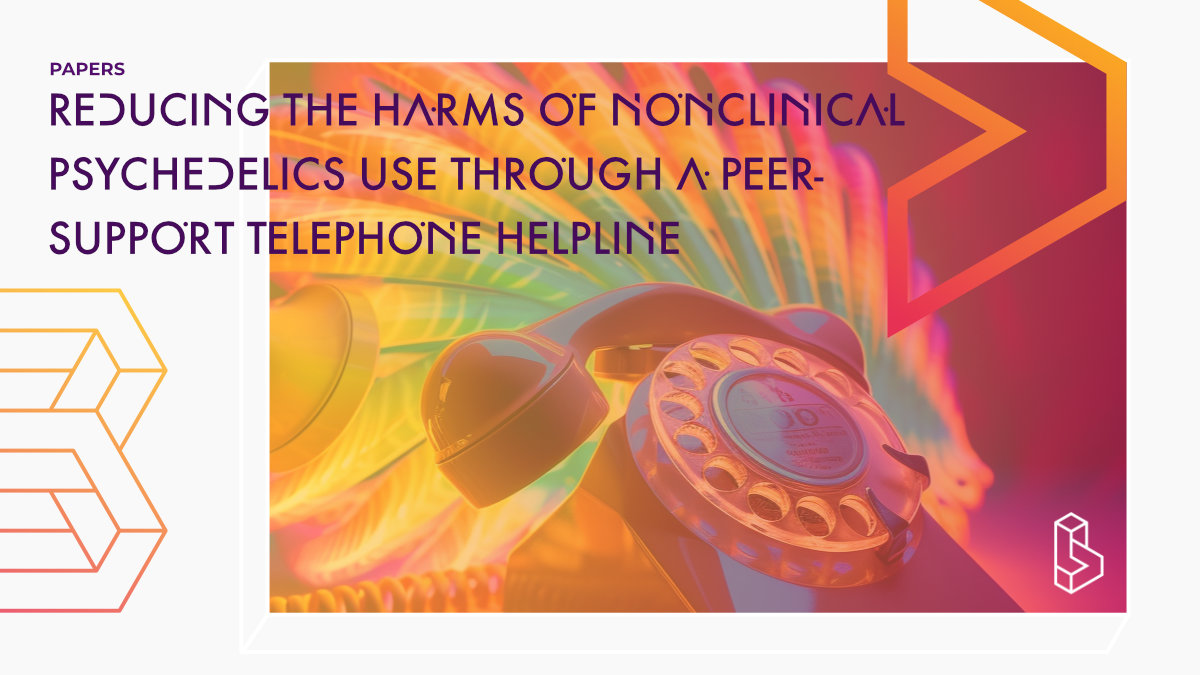This data analysis study (n=884) examines the impact of a psychedelic helpline on mitigating risks associated with nonclinical psychedelic use. The findings suggest that 65.9% of callers experienced a de-escalation in psychological distress due to the helpline. Additionally, 29.3% reported they could have been harmed, 12.5% might have dialed 911, and 10.8% could have visited an emergency room had it not been for their interaction with the helpline, implying the helpline may prevent harmful outcomes and alleviate strain on emergency and medical services.
Abstract of Reducing the Harms of Nonclinical Psychedelics Use Through a Peer-Support Telephone Helpline
“Introduction: A resurgence of interest in the use of psychedelics for mental health and wellness has stimulated greater experimentation with psychedelics in society. Although clinical psychedelic trials protect research participants by offering a safe setting, thorough preparation, and containment during and after ingestion of psychedelic medicines, many try these substances without the benefit of these safeguards.
Materials and Methods: We analyzed data gathered from 884 callers to a psychedelic helpline to determine whether a helpline model could reduce the risks associated with nonclinical psychedelics use.
Results: In total, 65.9% of callers indicated that the helpline de-escalated them from psychological distress. If not for their conversation with the helpline, 29.3% of callers indicated they may have been harmed; 12.5% indicated that they may have called 911; and 10.8% indicated they may have gone to the emergency room.
Conclusion: The data suggest that access to a psychedelic helpline surrounding psychedelic experiences may avert harmful outcomes and offset the burden on emergency and medical services.”
Authors: Mollie M. Pleet, Joshua White, Joseph A. Zamaria & Rachel Yehuda
Find this paper
Reducing the Harms of Nonclinical Psychedelics Use Through a Peer-Support Telephone Helpline
https://doi.org/10.1089/psymed.2022.0017
Open Access | Google Scholar | Backup | 🕊
Cite this paper (APA)
Pleet, M. M., White, J., Zamaria, J. A., & Yehuda, R. (2023). Reducing the Harms of Nonclinical Psychedelics Use Through a Peer-Support Telephone Helpline. Psychedelic Medicine.
Authors
Authors associated with this publication with profiles on Blossom
Rachel YehudaRachel Yehuda is the director of the Center for Psychedelic Psychotherapy and Trauma Research at Icahn School of Medicine at Mount Sinai. Her interests include PTSD treatment innovation, PTSD prevention, the study of risk and resilience factors, psychological and biological predictors of treatment response in PTSD, genetic and epigenetic studies of PTSD, and the intergenerational transmission of trauma and PTSD. She has an active federally-funded clinical and research program that welcomes local and international students and clinicians.

